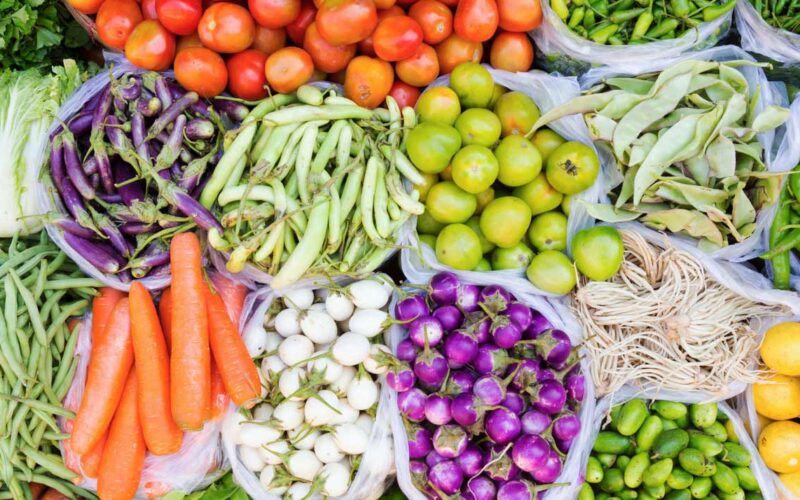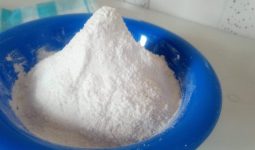Craving a sweet treat that’s good for you too? Look no further than fiber-rich fruits! These tasty powerhouses pack a nutritional punch, offering more than just natural sugars.
Eating fruits high in fiber can improve your digestion, support heart health, and help manage your weight.
Did you know that some fruits contain more fiber than others? From berries to tropical delights, there’s a wide variety of options to choose from.
Adding these to your diet can boost your daily fiber intake and provide essential vitamins and minerals.
Ready to discover which fruits can help you meet your fiber goals? Let’s explore some top high-fiber fruits that not only taste great but also offer numerous health benefits.
You’ll be surprised at how easy it is to incorporate these nutritious options into your meals and snacks.
Apples
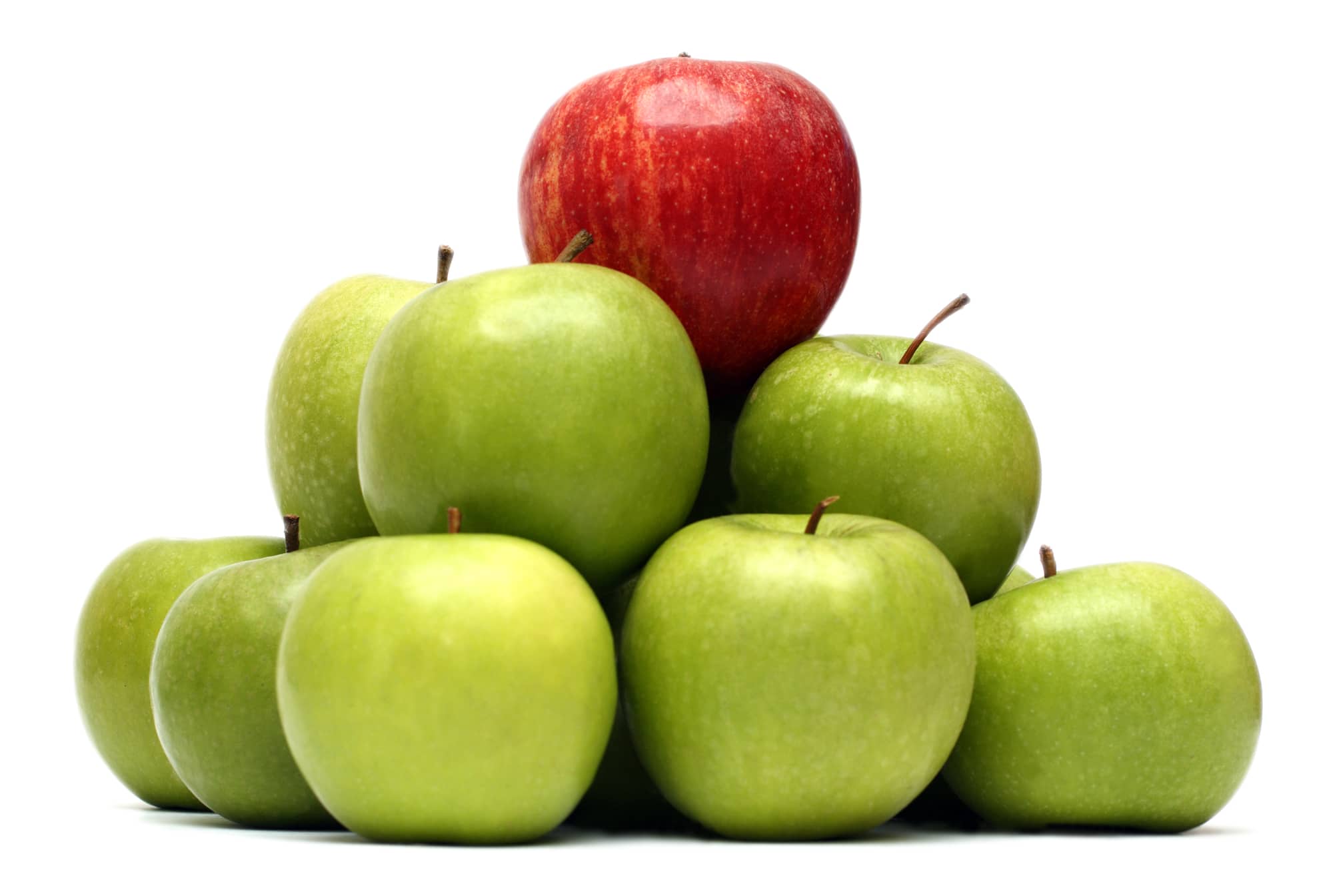
Apples are a tasty and convenient snack that can boost your fiber intake.
You’ll find about 4.4 grams of fiber in one medium-sized apple. That’s a good chunk of your daily fiber needs!
When you eat an apple, make sure to keep the skin on. The skin contains a lot of the fiber and other nutrients. Eating the whole fruit gives you the most benefits.
Apples come in many varieties. Some popular ones are:
- Red Delicious
- Granny Smith
- Gala
- Fuji
- Honeycrisp
You can enjoy apples in different ways. Try slicing them up for a quick snack or adding them to your morning oatmeal. They’re also great in salads or baked into pies and crisps.
Remember, apples are versatile. You can eat them raw, cooked, or even dried. Each form still gives you a good amount of fiber.
By eating apples regularly, you’re not just getting fiber. You’re also getting vitamins, minerals, and antioxidants. It’s an easy way to improve your diet and health.
Pears
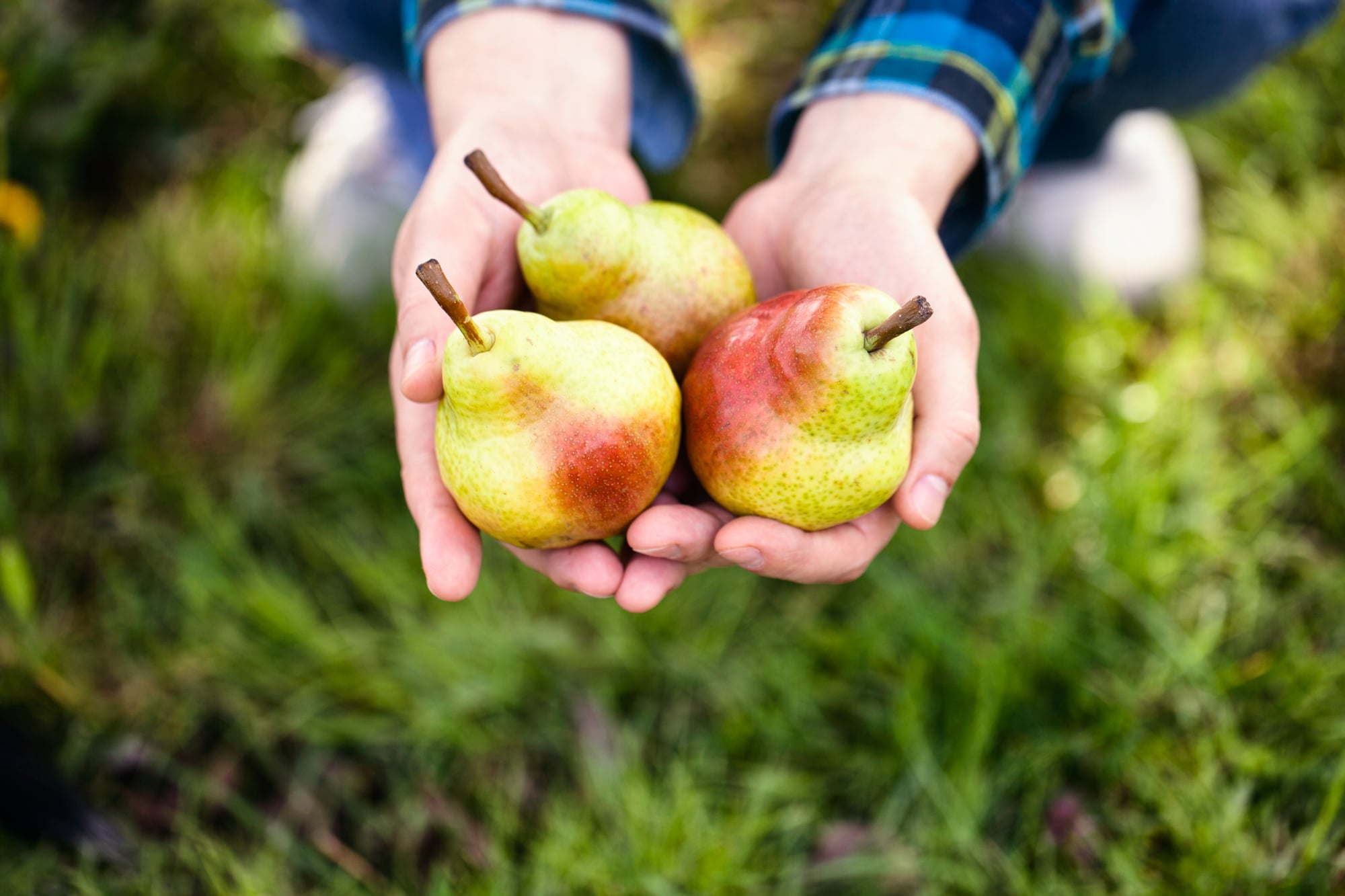
Pears are a tasty fruit that can add fiber to your diet. A medium pear gives you 5.5 grams of fiber. That’s a good amount to help keep your digestion on track.
You’ll find pears in many colors and varieties. They grow all over the world, so you can enjoy them almost anywhere.
When eating pears, keep the skin on. The pear skin has lots of fiber, so eating it whole is best. This way, you get the most nutrition from your snack.
Pears aren’t just about fiber. They’re also full of vitamin C, which is great for your immune system.
Plus, they’re low in calories, making them a smart choice if you’re watching your weight.
Try adding pears to your breakfast. Slice them up and put them on top of your cereal or oatmeal.
You can also enjoy them as a quick snack on the go. Their sweet taste and juicy texture make them a hit with kids and adults alike.
Remember, eating a variety of fruits is key to a healthy diet. But pears are definitely a fiber-rich option you don’t want to miss out on.
Bananas

Bananas are a tasty fruit that can help you meet your daily fiber needs. A medium-sized banana provides about 3 grams of fiber.
This makes them a good choice for adding more fiber to your diet.
The fiber in bananas is a mix of different types. They contain both soluble and insoluble fiber.
Soluble fiber can help lower cholesterol and control blood sugar. Insoluble fiber aids digestion and keeps you regular.
Bananas are also packed with other nutrients. They’re a great source of:
- Potassium
- Vitamin B6
- Vitamin C
- Antioxidants
You can enjoy bananas in many ways. Eat them on their own as a quick snack. Slice them onto cereal or oatmeal.
Add them to smoothies for extra creaminess and fiber. Ripe bananas are sweeter and easier to digest.
But green bananas have some unique benefits too. They contain resistant starch, which acts like fiber in your gut.
Remember, the fiber content can vary slightly based on the size of the banana. A larger banana will give you more fiber than a smaller one.
But any banana you choose will contribute to your daily fiber intake.
Raspberries
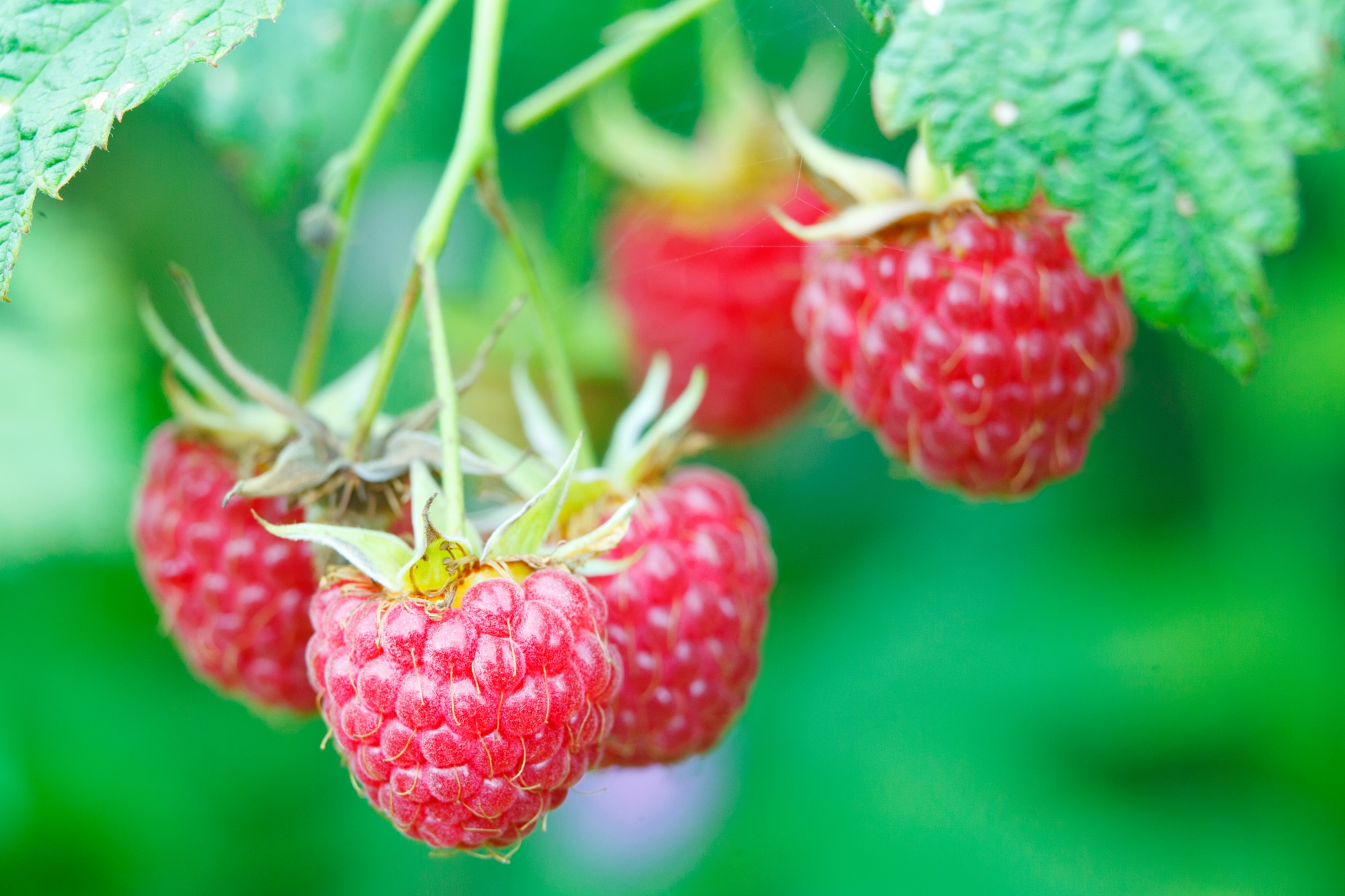
Raspberries are a fiber superstar among fruits. You’ll get a big nutritional bang for your buck with these little red berries.
Did you know a cup of raspberries packs about 8 grams of fiber? That’s a lot for such a small serving!
These berries are not just high in fiber. They’re also low in calories and rich in vitamins. You get all this goodness in a sweet, tart package.
Raspberries are versatile too. You can eat them fresh, frozen, or dried. Try adding them to your morning yogurt or oatmeal. They’re great in smoothies too!
Want a quick fiber boost? Grab a handful of raspberries as a snack. Your taste buds and your digestive system will thank you.
Remember, raspberries have only 6.7 grams of net digestible carbs per serving.
This makes them a good choice if you’re watching your carb intake.
So next time you’re at the grocery store, don’t forget to pick up some raspberries. Your body will love the fiber and nutrients they provide.
Blackberries
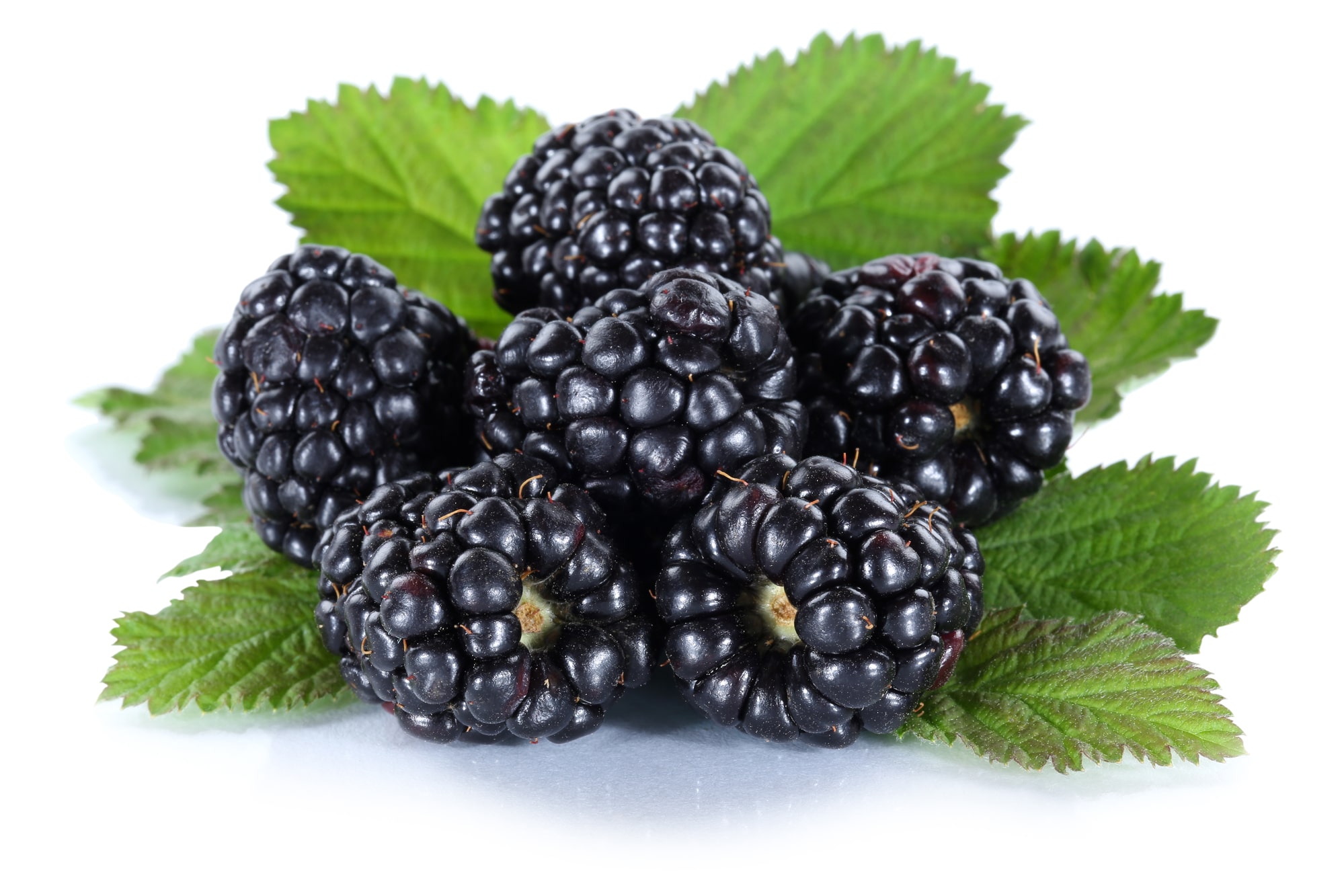
Blackberries are a tasty treat packed with fiber. You’ll get about 8 grams of fiber in just one cup of these juicy berries. That’s a lot of fiber for such a small serving!
These dark purple fruits aren’t just good for your digestion. They’re also full of vitamins and minerals your body needs.
Blackberries give you vitamin C, which helps keep your immune system strong.
Did you know blackberries can be good for your brain? Some studies show they might help keep your mind sharp as you age.
The plant compounds in blackberries could protect your brain cells.
Blackberries are easy to add to your diet. You can eat them fresh as a snack or add them to your morning yogurt.
They’re also great in smoothies or baked into muffins. If you can’t find fresh blackberries, don’t worry. Frozen ones are just as nutritious and available year-round.
They’re perfect for making berry sauces or adding to your oatmeal.
Remember, all berries are good sources of fiber. But blackberries are one of the best.
So next time you’re at the store, grab a pack of these fiber-rich fruits!
Strawberries
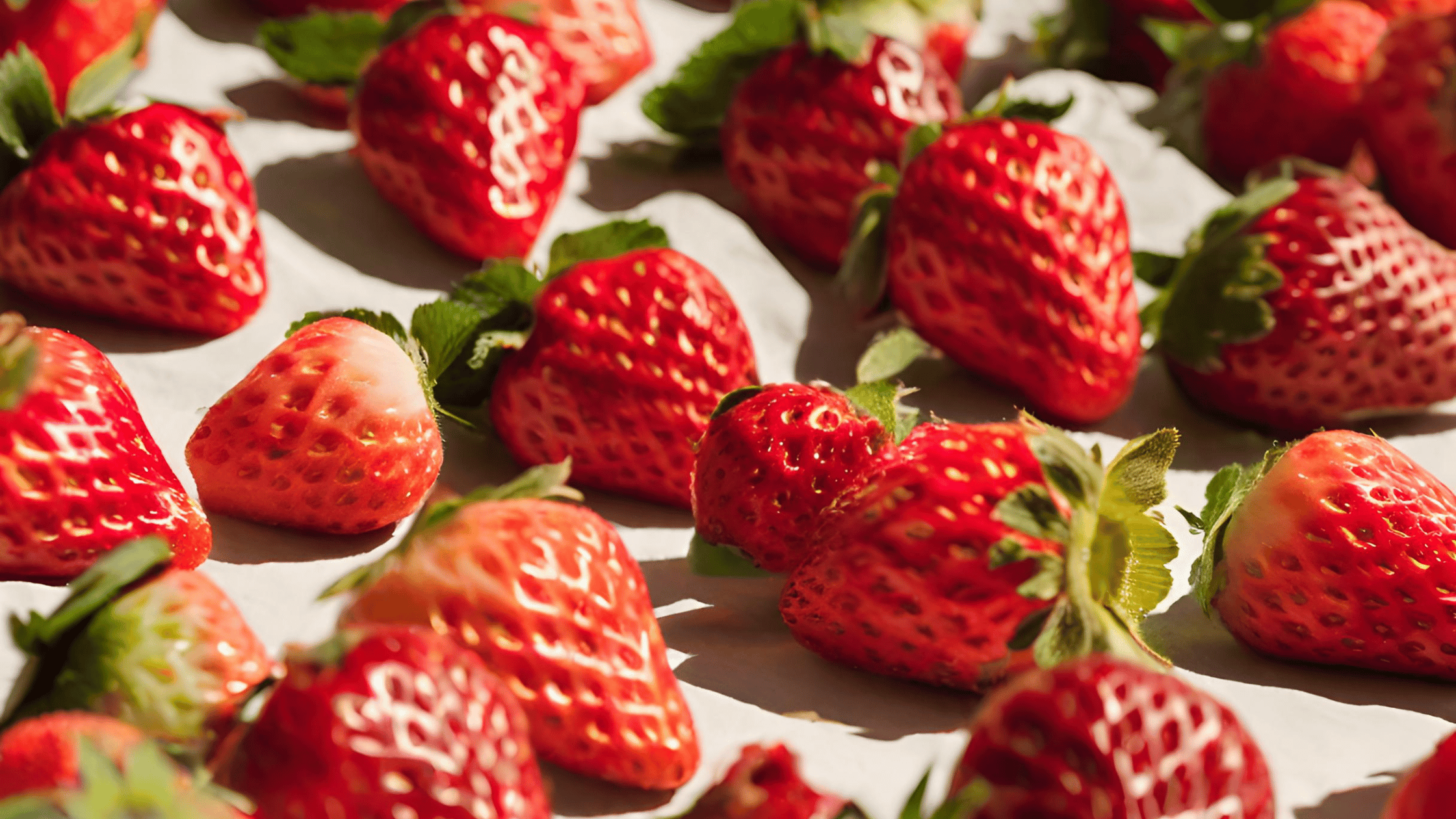
Strawberries are a tasty fruit that can help you boost your fiber intake. These bright red berries are not only delicious but also good for your health.
A cup of strawberries gives you about 3 grams of fiber. That’s a nice amount to help you reach your daily fiber goals.
Strawberries are easy to add to your diet. You can eat them fresh, add them to yogurt, or blend them into smoothies. They’re also great in salads or as a topping for whole-grain cereal.
Besides fiber, strawberries pack other good stuff too. They’re full of vitamin C, which is great for your immune system.
They also have antioxidants that can help keep your body healthy.
When you buy strawberries, look for bright red ones with fresh green leaves. Wash them just before you eat them to keep them fresh longer.
Remember, eating a variety of fruits is key to getting enough fiber. But strawberries are a yummy way to start boosting your fiber intake today!
Blueberries

Blueberries are a tasty and nutritious fruit that can help boost your fiber intake. These small, round berries pack a surprising amount of fiber into each serving.
A cup of blueberries contains about 4 grams of fiber. That’s a good chunk of your daily fiber needs in just one snack!
Blueberries are easy to add to your diet. You can:
- Toss them in yogurt
- Add them to smoothies
- Sprinkle them on cereal
- Eat them plain as a snack
The fiber in blueberries is mostly soluble. This type of fiber can help lower cholesterol and control blood sugar levels.
Blueberries aren’t just about fiber. They’re also rich in antioxidants called anthocyanins.
These give blueberries their deep blue color and may help protect your body from damage.
Fresh or frozen, blueberries are a great choice. Frozen berries are just as nutritious and can be more budget-friendly. They’re perfect for smoothies or baking.
Try adding a handful of blueberries to your meals. Your taste buds and your digestive system will thank you!
Oranges

Oranges are a tasty and fiber-rich fruit you can easily add to your diet.
These citrus fruits are not only juicy and refreshing but also pack a nutritional punch.
A medium-sized orange contains about 3 grams of fiber. This is about 10% of your daily fiber needs. Not bad for a small snack!
You can enjoy oranges in many ways:
- Eat them fresh as a quick snack
- Add orange slices to your salads
- Squeeze them for fresh juice
- Use the zest in baking or cooking
Oranges are also great for your immune system. They’re loaded with vitamin C, which helps keep you healthy.
When choosing oranges, pick ones that feel heavy for their size. This usually means they’re juicier. The skin should be firm and smooth.
Remember to eat the whole fruit when possible. The white pith under the peel contains lots of fiber, too.
Don’t just drink orange juice – you’ll miss out on most of the fiber.
Try adding oranges to your breakfast or as an afternoon snack. They’re a sweet way to boost your fiber intake and stay hydrated.
Grapefruit

Grapefruit is a tasty citrus fruit that packs a fiber punch. You might be surprised to learn that just half a grapefruit contains about 2 grams of fiber.
This juicy fruit is not only a good source of fiber, but it’s also low in calories.
A half grapefruit has only about 52 calories, making it a great choice for weight-conscious eaters.
Grapefruit comes in different varieties:
- Pink
- Red
- White
The pink and red types tend to be sweeter, while the white variety is a bit more tart.
Grapefruit may support your immune system thanks to its high vitamin C content.
It’s also rich in antioxidants, which can help protect your cells from damage.
Here’s a quick nutritional breakdown for half a grapefruit:
| Nutrient | Amount |
|---|---|
| Calories | 52 |
| Fiber | 2g |
| Vitamin C | 64% DV |
You can enjoy grapefruit in many ways:
- Eat it raw with a sprinkle of sugar
- Add it to salads for a tangy twist
- Juice it for a refreshing drink
Remember, some medications can interact with grapefruit. If you’re on any prescriptions, check with your doctor before adding grapefruit to your diet.
Avocados
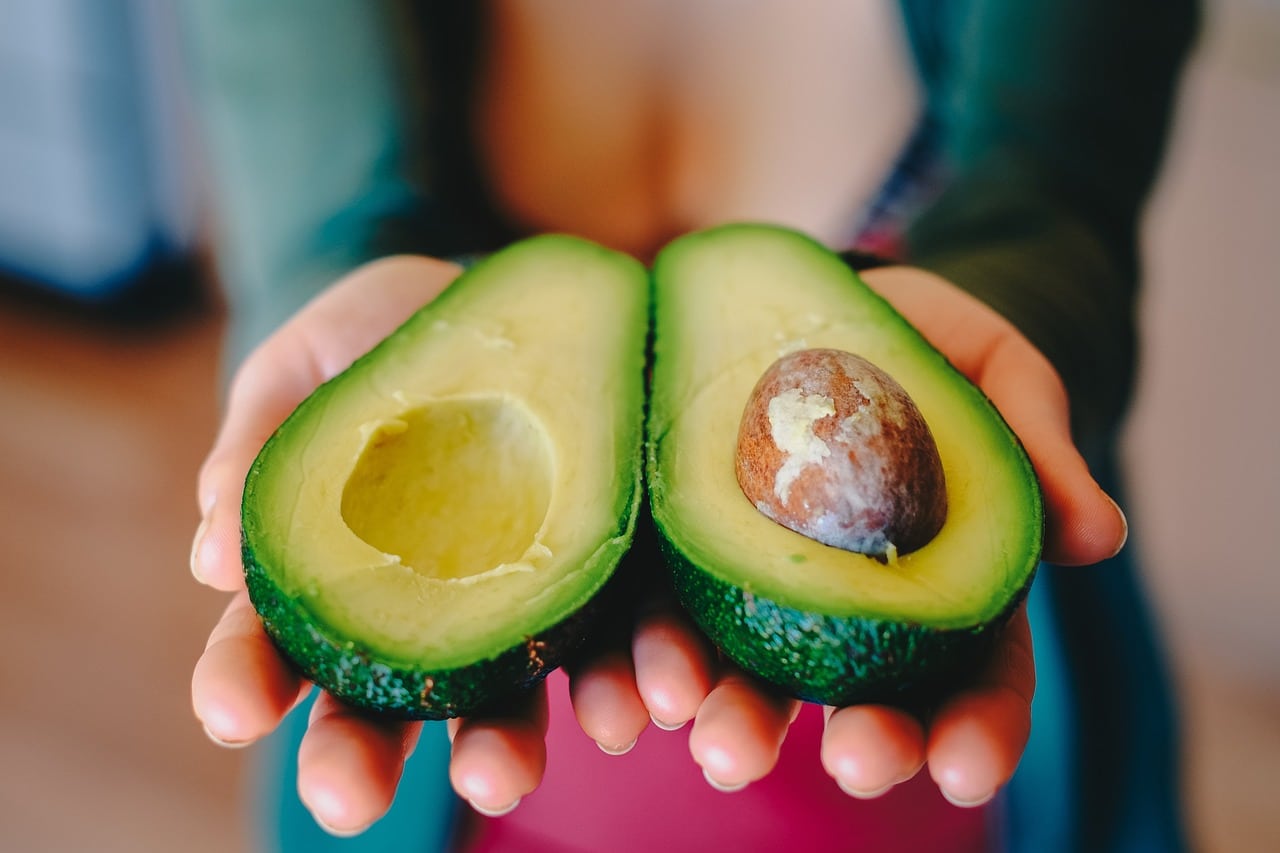
You might think of avocados as a veggie, but they’re actually a fruit! These creamy green gems are packed with fiber.
A medium avocado has about 14 grams of fiber, which is a lot for a fruit.
Avocados have both types of fiber – soluble and insoluble. This helps keep your gut happy and your digestion smooth. The fiber in avocados can also help you feel full longer.
But wait, there’s more! Avocados are also:
- High in healthy fats
- Rich in vitamins and minerals
- Great for your heart
You can add avocados to your diet in many ways:
- Spread on toast
- Mashed into guacamole
- Sliced in salads
- Blended into smoothies
Don’t worry about the calories. While avocados are high in calories, they’re super nutritious.
The fiber and healthy fats in avocados can actually help with weight management.
Remember, you don’t need to eat a whole avocado to get the benefits.
Even half an avocado gives you a good amount of fiber and other nutrients. So go ahead, add some avocado to your next meal!
Figs
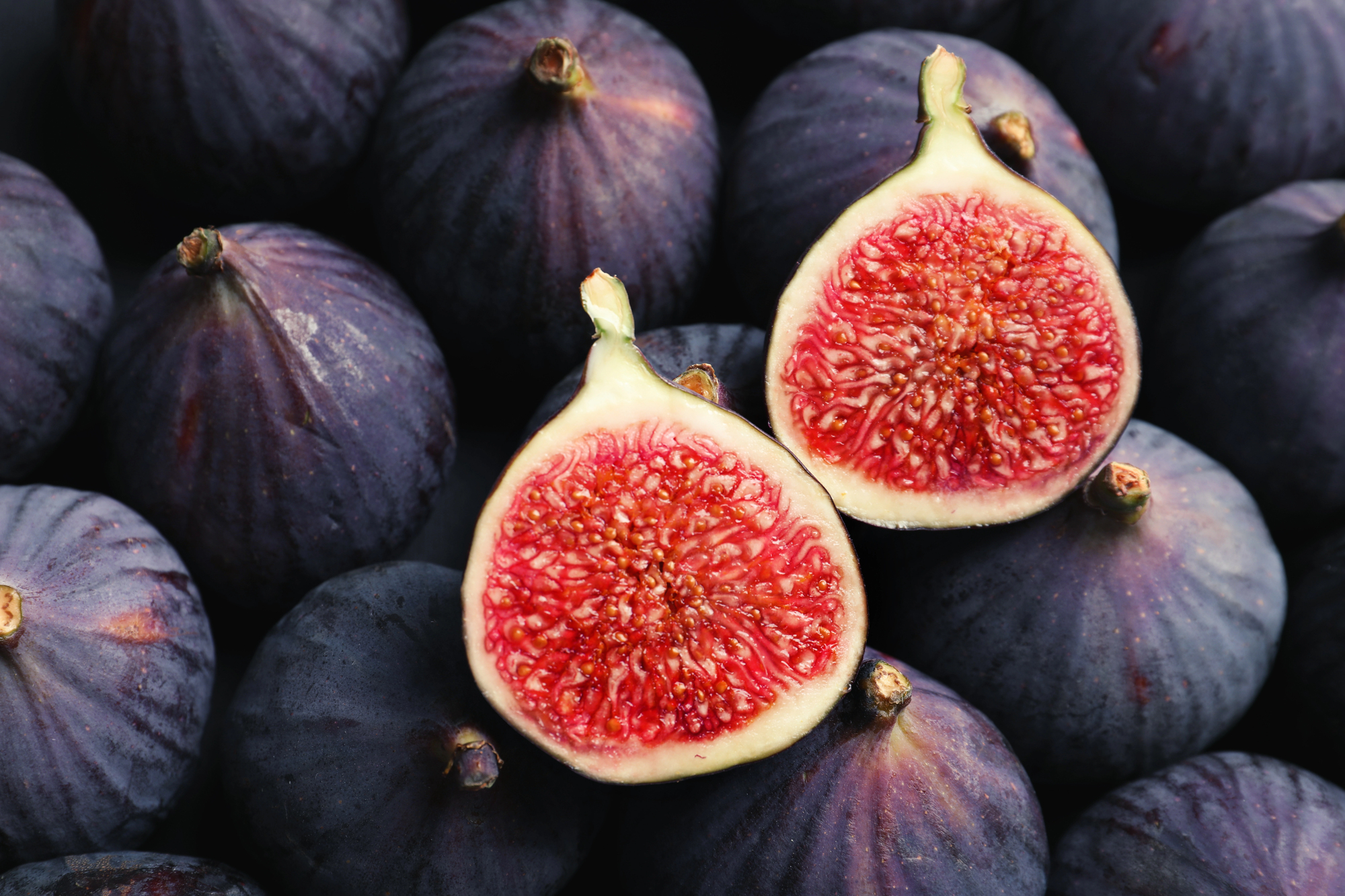
Figs are a sweet and chewy fruit that pack a fiber punch. You might be surprised to learn that figs contain both soluble and insoluble fiber. This makes them great for your digestive health.
When you eat figs, you’re getting a good dose of nutrients. They’re loaded with:
- Fiber
- Potassium
- Manganese
- Vitamin K
Fresh figs are delicious, but dried figs are more common. A small raw fig has about 1.2g of fiber. Dried figs have even more fiber per serving.
Eating figs can help you in many ways. They may:
- Boost your heart health
- Help with constipation
- Balance your blood sugar
You can enjoy figs in many ways. Try them fresh, dried, or even as a fig leaf tea. Adding figs to your diet is an easy way to increase your fiber intake.
Remember, while figs are healthy, they’re also high in natural sugars. Dried figs have more calories and sugar than fresh ones. So, enjoy them in moderation as part of a balanced diet.
Kiwi
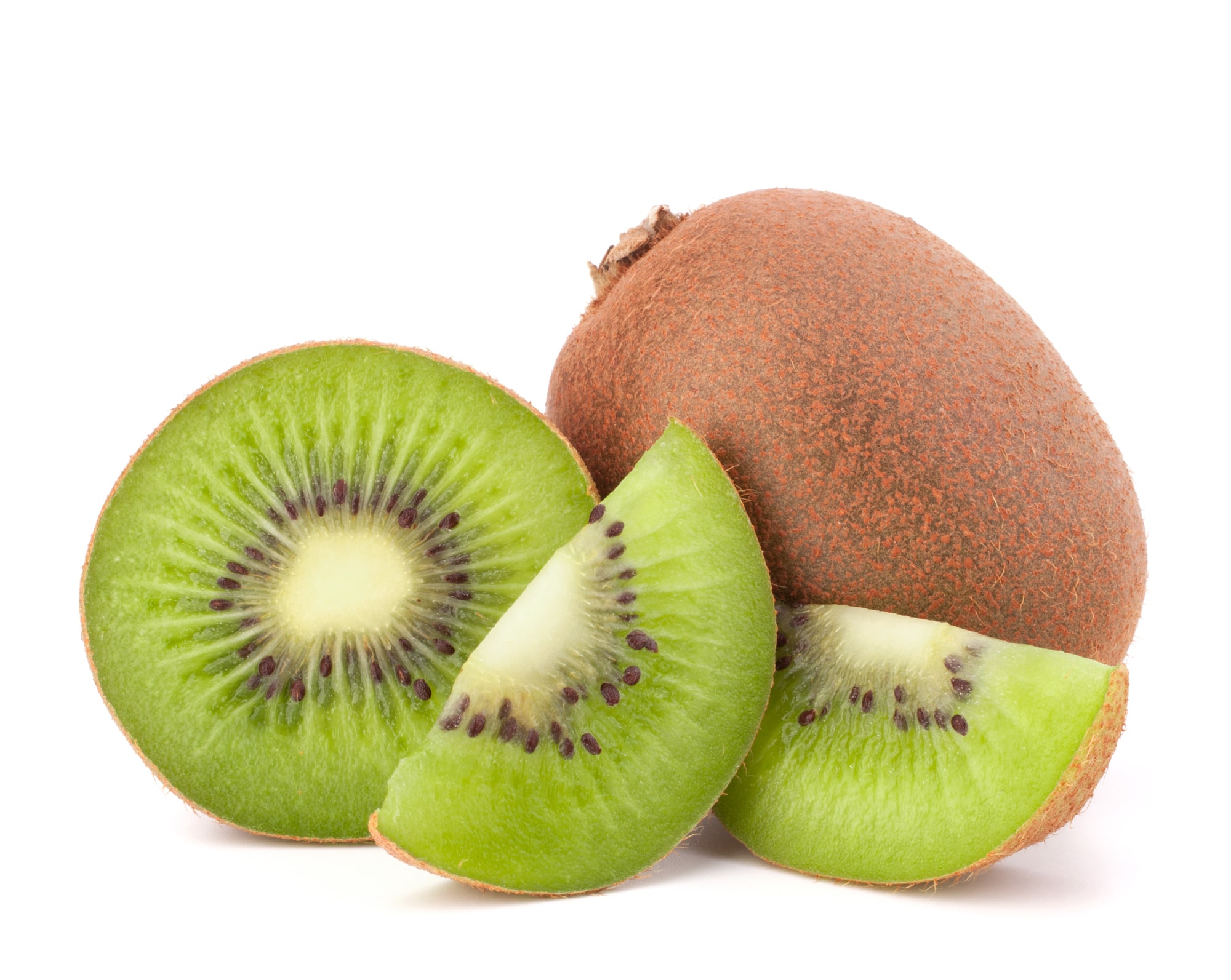
Kiwi is a small but mighty fruit when it comes to fiber. This fuzzy brown fruit with bright green flesh packs a nutritional punch.
One medium kiwi contains about 2.5 grams of fiber. That’s a good amount for such a small fruit!
Kiwis have both soluble and insoluble fiber. This mix helps keep your digestion running smoothly.
The fiber in kiwis can help you feel full. This makes them a great snack if you’re trying to watch your weight.
Kiwis are also loaded with vitamin C. One kiwi provides 7% of your daily vitamin C needs. This vitamin helps boost your immune system and keeps your skin healthy.
You can eat kiwis in many ways:
- Slice them in half and scoop out the flesh
- Cut them into rounds for a pretty addition to fruit salads
- Blend them into smoothies for a fiber boost
Don’t forget, you can eat the skin too! It’s fuzzy but edible and adds extra fiber to your diet.
Try adding kiwis to your breakfast or as a sweet treat after dinner. They’re tasty and good for your gut health.
Pomegranates

Pomegranates are a tasty and healthy fruit you might want to add to your diet. These round, red fruits are packed with juicy seeds called arils.
Did you know pomegranates are high in fiber? One whole pomegranate gives you over 11 grams of fiber. That’s a big chunk of what you need each day!
Eating pomegranates can be fun. You can:
- Snack on the seeds by themselves
- Sprinkle them on salads
- Mix them into yogurt
- Add them to smoothies
Pomegranates are not just about fiber. They’re full of good stuff like vitamins and minerals. They even have more antioxidants than green tea or red wine.
Want to know how many calories are in pomegranate seeds? A half-cup serving has about 72 calories.
It also gives you 3.5 grams of fiber and 16 grams of carbs. Pomegranates might help your body in many ways.
They could be good for your heart and may even help you exercise longer. Some studies say they might support urinary health too.
Remember, while pomegranates are great, they should be part of a balanced diet with lots of different fruits and veggies.
Try adding this fiber-rich fruit to your meals and see how you like it!
Guava

Guava is a tasty tropical fruit that packs a fiber punch. You’ll love how this sweet treat can boost your daily fiber intake.
A single guava contains about 3 grams of fiber. That’s 12% of what you need each day! Adding guavas to your diet is an easy way to up your fiber game.
Guavas come in different sizes, so let’s break it down:
- 1 guava: 3 grams of fiber
- 1 cup of guava pieces: 8.9 grams of fiber
- 100 grams of guava: 5.4 grams of fiber
You can eat guavas fresh or try them in other forms. Guava nectar is another option.
A cup of canned guava nectar gives you 2.5 grams of fiber. That’s 10% of your daily needs.
Guavas aren’t just about fiber. They’re packed with other good stuff too. These fruits can help lower your blood sugar and are full of vitamins.
Next time you’re at the store, grab some guavas. Your taste buds and your gut will thank you!
Mangoes
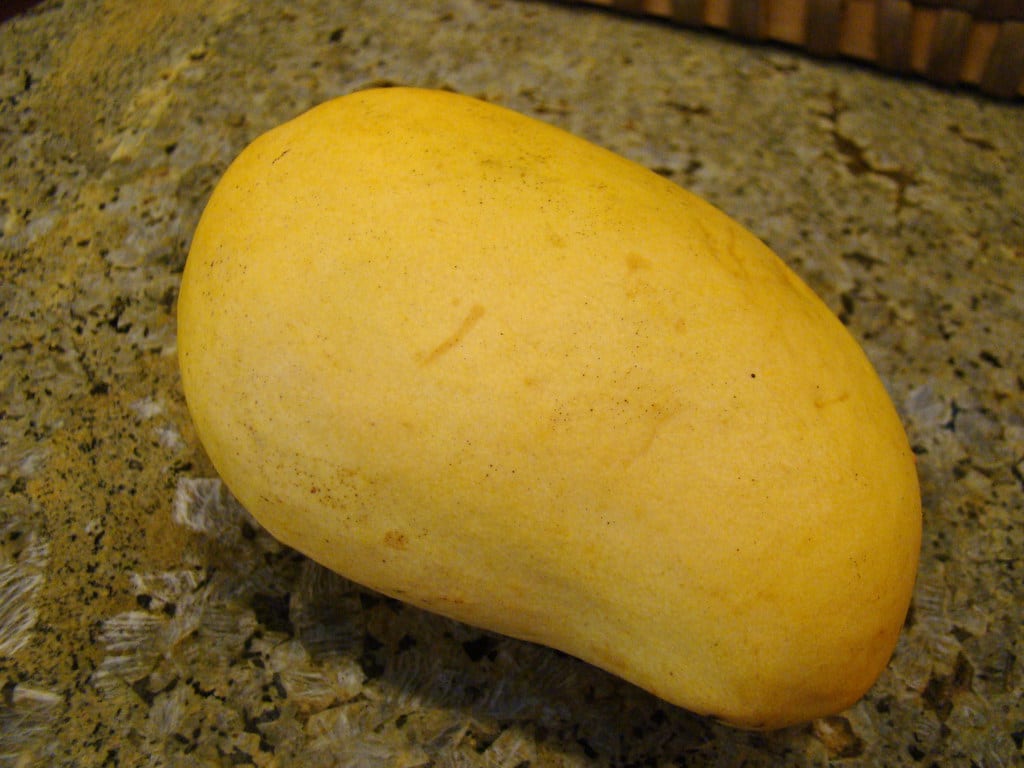
Mangoes are a delicious tropical fruit that can add fiber to your diet. One mango gives you about 7% of your daily fiber needs. This makes them a tasty way to boost your fiber intake.
When you eat a mango, you’re getting both types of fiber – soluble and insoluble. These help keep your digestive system healthy and working well.
Mangoes are also sweet and juicy. You might think this means they’re high in sugar.
While they do contain natural sugars, it’s best to enjoy them in moderation. Try sticking to about 2 cups per day.
Besides fiber, mangoes pack other nutrients too. They’re rich in vitamins A and C, which are good for your immune system and skin health.
Here are some easy ways to add mango to your diet:
- Slice it up for a snack
- Add it to smoothies
- Mix it into salsa
- Use it in fruit salads
Remember, the fiber in mangoes can help you feel full. This might help if you’re trying to manage your weight or curb cravings for less healthy snacks.
Papaya
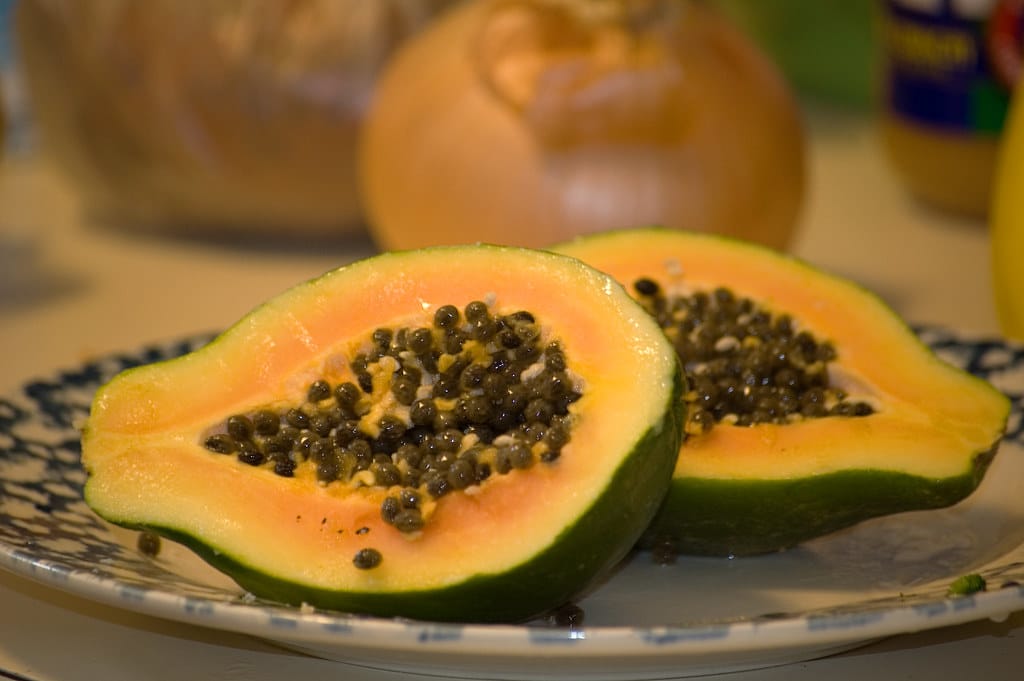
Papaya is a tasty tropical fruit that packs a good amount of fiber. If you’re looking to boost your fiber intake, this colorful fruit is a great choice.
One cup of papaya pieces contains 2.5 grams of fiber. That’s about 10% of the daily recommended amount for most adults.
Papaya offers other nutritional benefits, too. It’s rich in vitamin C and contains an enzyme called papain that may help with digestion.
Some people even use papaya to tenderize tough meat. The fiber in papaya is a mix of soluble and insoluble types.
Both are important for your health. Soluble fiber can help lower cholesterol, while insoluble fiber aids digestion.
Here are some easy ways to enjoy papaya:
- Add it to fruit salads
- Blend it into smoothies
- Eat it on its own as a snack
Remember, the riper the papaya, the sweeter it will be. A ripe papaya should give slightly when you press it, similar to a ripe avocado.
Peaches
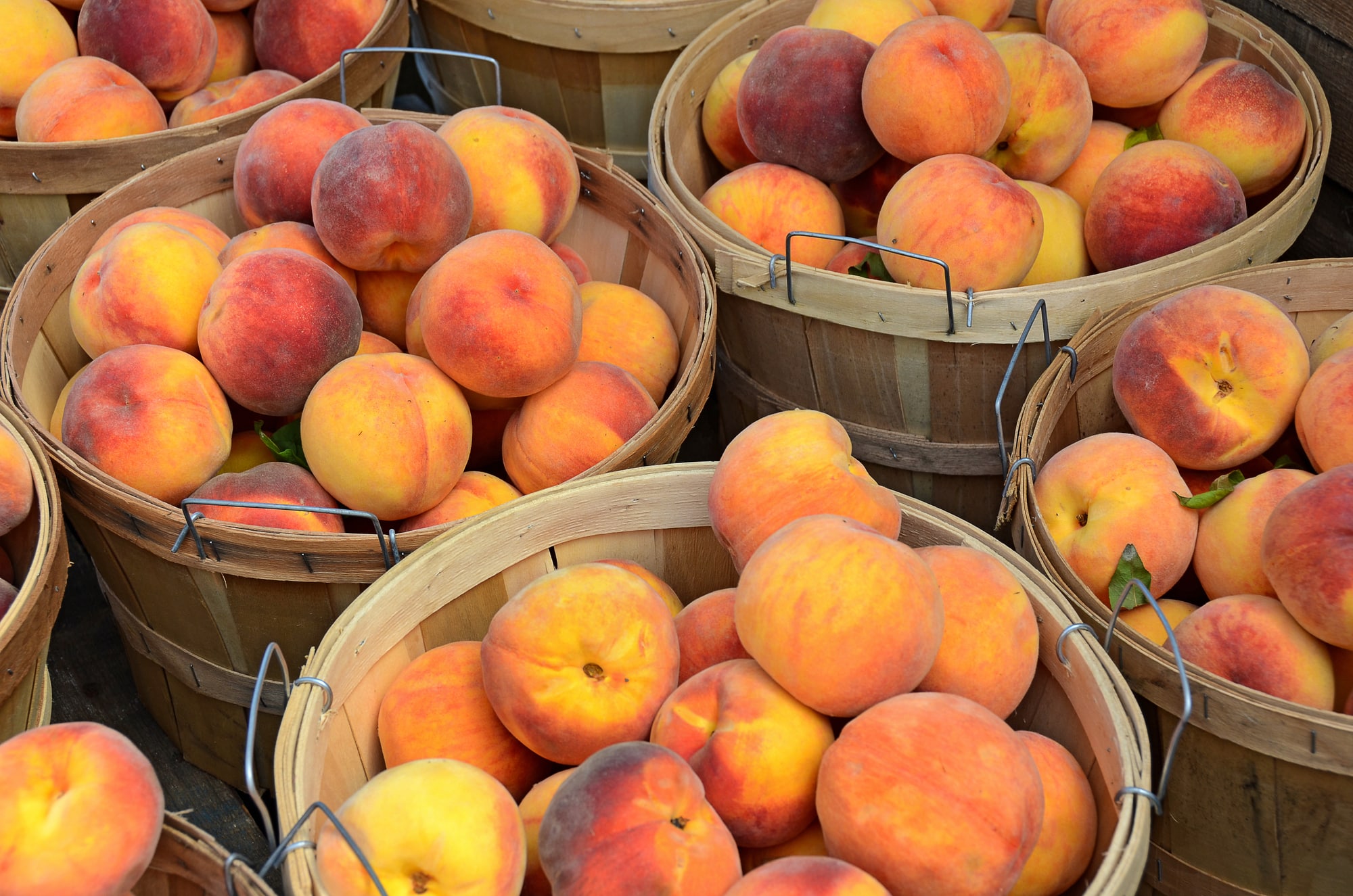
Peaches are a tasty summer fruit that also give you a good dose of fiber.
When you bite into a juicy peach, you’re not just enjoying the sweet flavor – you’re also getting some important nutrients.
A medium peach contains about 2 grams of fiber. This might not seem like a lot, but it adds up when you eat a few peaches.
The fiber in peaches can help keep your digestion running smoothly. Peaches offer more than just fiber.
They’re packed with vitamins and minerals that are good for your body.
You’ll get vitamin C, potassium, and antioxidants from eating peaches.
You can enjoy peaches in many ways:
- Eat them fresh as a snack
- Add slices to your morning cereal
- Blend them into smoothies
- Grill them for a tasty dessert
Peaches are versatile fruits. You can find them fresh in the summer, but canned and frozen peaches are available year-round.
Just remember, canned peaches often have added sugar, so check the label if you’re watching your sugar intake.
Try adding more peaches to your diet. They’re a yummy way to boost your fiber intake and get other health benefits too.
Plums
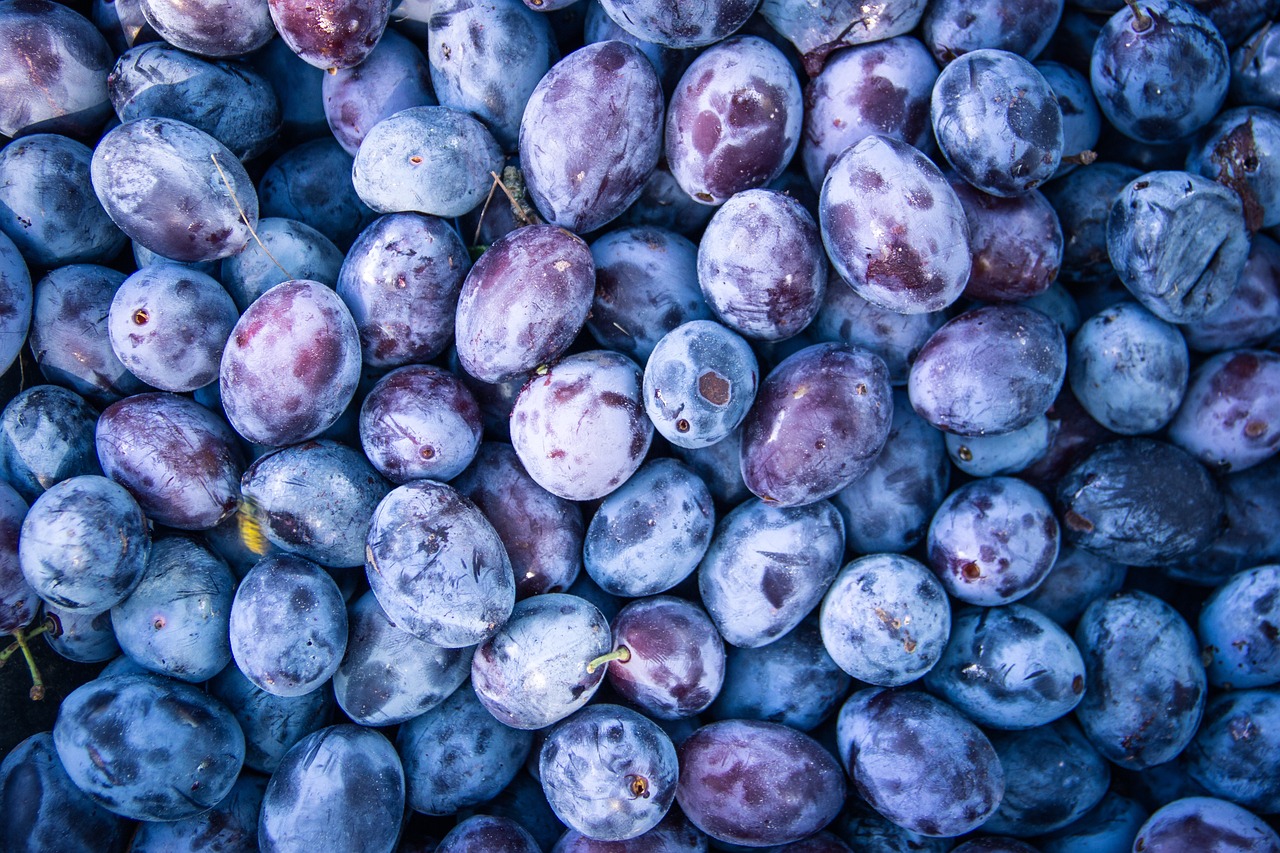
Plums are a tasty fruit that can help boost your fiber intake. These small, round fruits come in different colors like purple, red, and yellow.
A medium-sized plum contains about 1 gram of fiber. While this may not seem like much, it adds up when you eat a few plums.
Plums are also rich in vitamins and minerals. They contain vitamin C, which supports your immune system. Plums also provide potassium for heart health.
You can enjoy plums in many ways. Eat them fresh as a snack or add sliced plums to your morning yogurt. Dried plums, also known as prunes, have even more fiber.
Plums and prunes may help relieve constipation. This is due to their fiber content and a natural laxative called sorbitol.
Try adding plums to your diet for a fiber boost. They’re sweet, juicy, and good for your digestive health.
Plus, they’re low in calories, making them a great choice for weight management.
Prunes
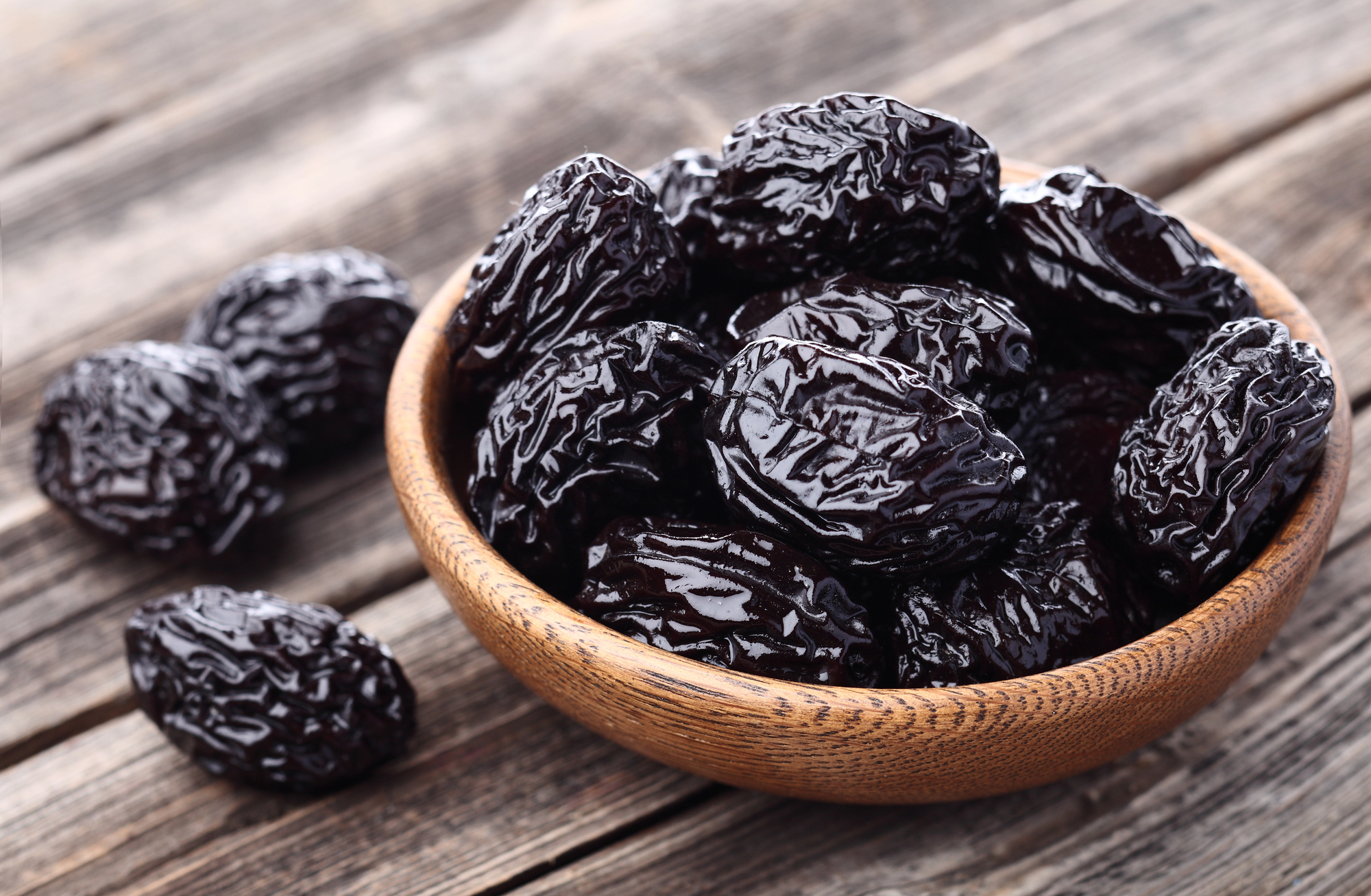
Prunes are a tasty and nutritious dried fruit that can boost your fiber intake.
These wrinkly treats are actually dried plums, and they pack a powerful nutritional punch.
A serving of five prunes contains about 104 calories. That’s not bad for a sweet snack! But the real star here is the fiber content.
Prunes are fiber powerhouses. They can help keep your digestive system running smoothly.
Eating prunes regularly may prevent constipation and support regular bowel movements.
But wait, there’s more! Prunes aren’t just about keeping you regular. They’re also:
- Rich in vitamin K
- A good source of potassium
- Packed with antioxidants
You might be wondering how many prunes you should eat. A typical serving is about 1/4 cup, or 4 to 6 prunes. This gives you 11% of your daily fiber needs.
Prunes can be a great addition to your diet. You can eat them as a snack, add them to your morning oatmeal, or even use them in cooking.
They’re versatile and delicious! Just remember, moderation is key. Eating too many prunes might lead to digestive discomfort due to their high fiber content. Start with a small amount and see how your body responds.
Cherries
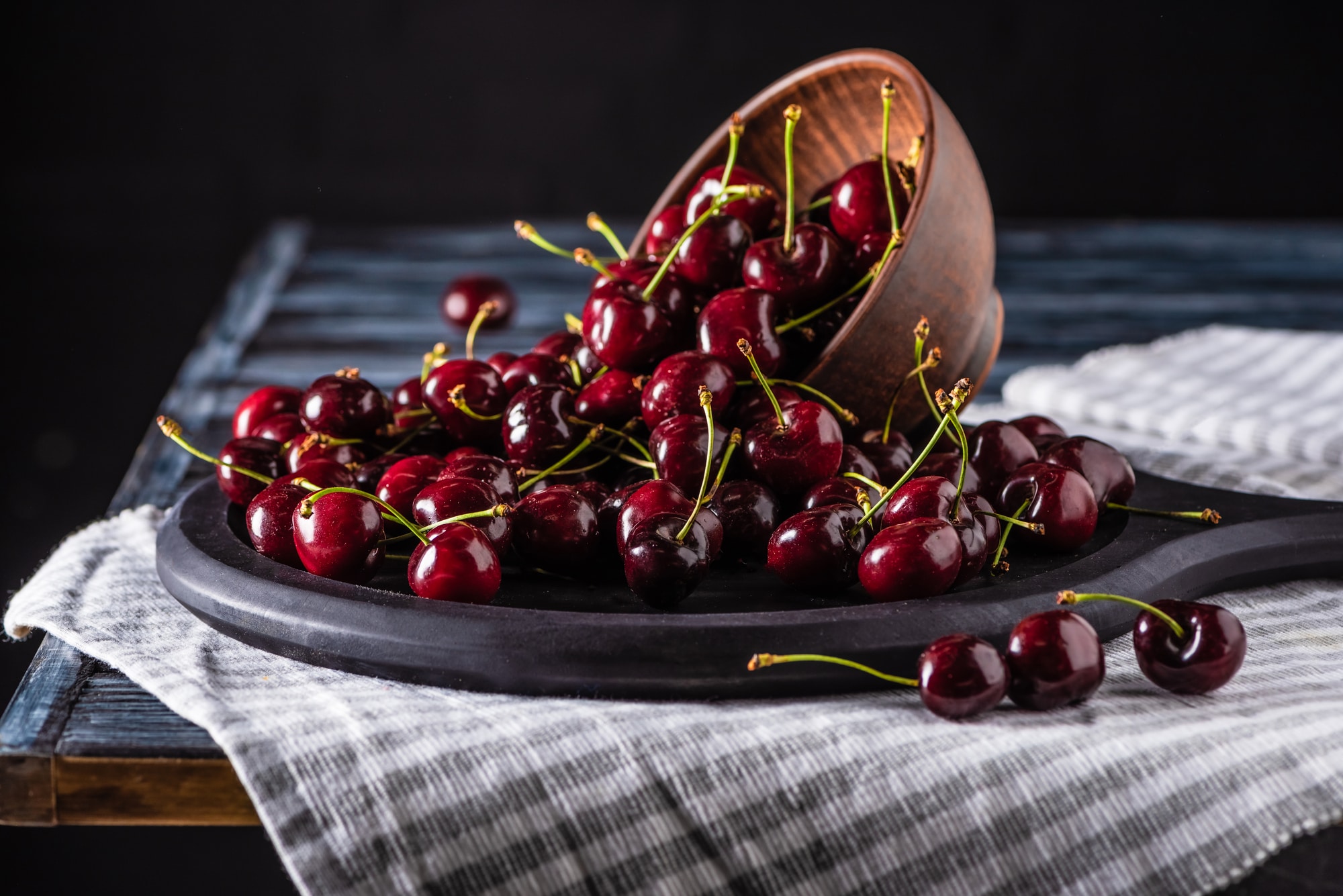
Cherries are a tasty fruit that can add fiber to your diet. While they may not be the highest in fiber, they still contribute to your daily intake.
A cup of cherries gives you about 3 grams of fiber. This helps you reach the recommended daily amount of 25-30 grams.
Cherries come in different types:
- Sweet cherries
- Tart cherries
- Rainier cherries
Each type has its own unique flavor, but they all provide fiber.
You can enjoy cherries in many ways:
- Eat them fresh as a snack
- Add them to yogurt or oatmeal
- Use them in baked goods
- Blend them into smoothies
Cherries offer more than just fiber. They’re packed with vitamins, minerals, and plant compounds that are good for your health.
When you eat cherries, you’re not just getting fiber. You’re also getting antioxidants that may help reduce inflammation in your body.
Remember to eat the whole cherry (except the pit) to get all the fiber. The skin of the cherry contains a good amount of fiber too.

